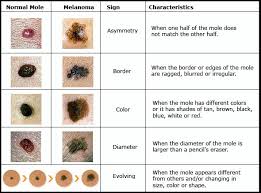 All dogs, whether pure bred or mixed breed are at a risk of developing cancer. Cancer is the leading cause of death in dogs, especially senior dogs. There are many different types of canine cancer. The most common forms of canine cancer are mammary, melanoma, bone ,connective tissue, skin and oral cancers. How cancer effects a particular dog depends upon the type of cancer and the biological make up of the individual dog.
All dogs, whether pure bred or mixed breed are at a risk of developing cancer. Cancer is the leading cause of death in dogs, especially senior dogs. There are many different types of canine cancer. The most common forms of canine cancer are mammary, melanoma, bone ,connective tissue, skin and oral cancers. How cancer effects a particular dog depends upon the type of cancer and the biological make up of the individual dog.
A diagnosis of cancer can be devastating. While food in itself cannot cure cancer, diet and nutrition can be an important tool in managing this disease. Diet and nutrition are significant to your dogs overall well being. Many of the popular brands of dog food are actually contributing to chronic illnesses in dogs. One of the many cancer causing agents are chemical additives and preservatives in dog food. If your dog has been diagnosed with cancer, we highly recommend feeding your dog a diet without grains, by products, useless fillers, artificial color, chemicals and preservatives. Dogs with cancer should eat a diet that is low in carbohydrates, high in digestible proteins and unsaturated fats. The diet should consist of vegetables high in antioxidant vitamins and minerals, especially iron. The diet should contain minimal quantities of rapidly absorbed simple sugars and contain Omega 3/DHA essential fatty and amino acids.
When dogs have cancer they need more calories in their diet. Cancer can burn energy very quickly and it is important that the dog does not lose lean muscle mass, which can weaken the dogs immune system making it more difficult to combat the effects of cancer. If your dog is undergoing chemotherapy you may need to feed small amounts of complex carbohydrates if they have lost a considerable amount of weight.
The 10 Early Warning Signs of Cancer
( From the American Veterinary Medical Association)
- Abnormal swellings that persist or continue to grow
- Sores that do not heal
- Weight loss
- Loss of appetite
- Bleeding or discharge from any body opening
- Offensive odor
- Difficulty eating or swallowing
- Hesitation to exercise or loss of stamina
- Persistent lameness or stiffness
- Difficulty breathing, urinating, or defecation
